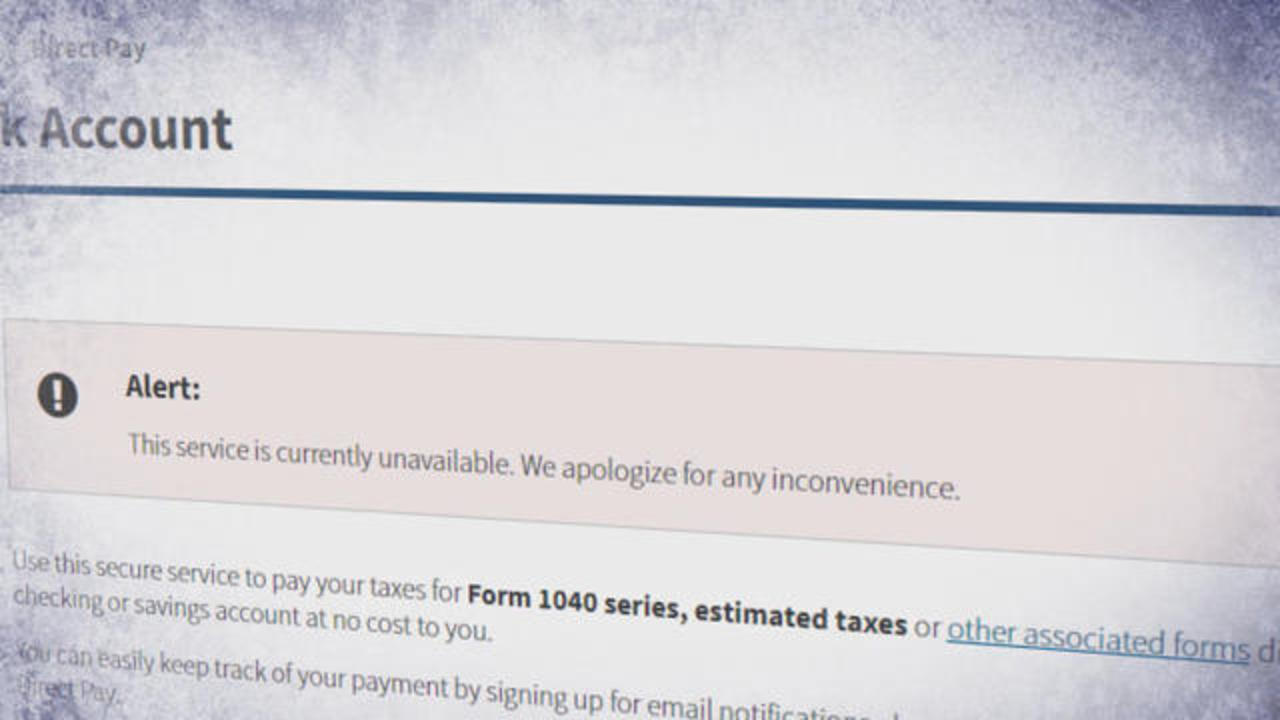Home>Finance>Why Are My Student Loans Not On My Credit Report


Finance
Why Are My Student Loans Not On My Credit Report
Published: January 19, 2024
Discover why your student loans may not be appearing on your credit report and how it affects your overall financial standing. Get insights on handling finance with omitted education debts.
(Many of the links in this article redirect to a specific reviewed product. Your purchase of these products through affiliate links helps to generate commission for LiveWell, at no extra cost. Learn more)
Table of Contents
Introduction
Have you ever wondered why your student loans are not showing up on your credit report? If you’re diligently making payments on your loans and building credit, it can be frustrating to see that your hard work isn’t reflected in your credit history. Your credit report is a crucial document that lenders, landlords, and even some employers use to assess your financial responsibility. It provides a snapshot of your borrowing history, including your payment history, outstanding debts, and credit utilization. Therefore, it’s essential to have accurate and up-to-date information on your credit report.
A credit report is compiled by credit reporting agencies, which gather data from various sources, such as lenders, banks, and credit card companies. These agencies collect information on your loans, credit cards, and other financial obligations and create a comprehensive credit report based on that data. This report helps lenders determine whether you’re a reliable borrower and what interest rates or terms to offer you.
It’s important to understand that not all debts or financial obligations automatically appear on your credit report. While some debts, such as credit card balances and mortgages, are typically included, others, like student loans, may not be. This lack of visibility can have implications for your credit score and your ability to secure future credit. So, why exactly are your student loans not showing up on your credit report? Let’s explore some common reasons in the next section.
Understanding Credit Reports
Before delving into why student loans may not appear on your credit report, it’s important to have a solid understanding of what credit reports are and how they work. A credit report is a comprehensive document that provides information about an individual’s credit history. It includes details about their borrowing and repayment behavior, outstanding debts, credit limits, and public records, such as bankruptcies or tax liens.
Credit reports are maintained by credit reporting agencies, also known as credit bureaus. The three major credit reporting agencies in the United States are Equifax, Experian, and TransUnion. These agencies collect data from various sources, including banks, lenders, credit card companies, and public records, to create a comprehensive profile of an individual’s creditworthiness.
When a lender or creditor evaluates your creditworthiness, they pull your credit report from one or more of these credit reporting agencies and review the information to assess your risk as a borrower. Your credit score, a numerical representation of your creditworthiness, is derived from the data contained in your credit report.
It’s important to note that credit reports are not static documents. They are updated regularly as new information is reported by lenders and creditors. This is why it’s crucial to regularly review your credit report to ensure its accuracy and to address any inaccuracies or discrepancies that may negatively impact your credit profile.
Now that you have a better understanding of credit reports, let’s explore the factors that determine inclusion of debts on a credit report.
What Determines Inclusion on a Credit Report
Not all debts or financial obligations are automatically included on your credit report. The inclusion of a debt on your credit report depends on several factors, including the type of debt and the reporting practices of the lender or creditor. Here are some key determinants of inclusion on a credit report:
- Credit Reporting Policies: Lenders and creditors have their own policies regarding which debts they report to the credit bureaus. While most financial institutions report credit card balances and mortgages, they may not report other types of debts, such as utility bills or medical bills. Student loans, in particular, have specific reporting guidelines, which we’ll discuss further in the next section.
- Public Records: Debts associated with public records, such as tax liens, bankruptcies, or civil judgments, are usually included on your credit report. These negative public records can significantly impact your credit score and creditworthiness.
- Reporting Interactions: Some lenders and creditors only report debts to one or two credit reporting agencies, rather than all three. This means that the debt may only appear on one or two of your credit reports, resulting in variations in your credit profile across different agencies.
- Minimum Threshold: Credit reporting agencies may have a minimum threshold for reporting certain debts. For example, a lender may only report a debt to the credit bureau if it exceeds a certain dollar amount. As a result, smaller debts may not be included on your credit report.
- Age of the Debt: In some cases, older debts may no longer be reported on your credit report. Credit reporting agencies have specific guidelines on the duration for which various types of debts and negative information can appear on your credit report.
It’s important to keep in mind that each lender or creditor has its own reporting policies, and there is no universal rule for which debts are included on a credit report. This is why you may find variations in your credit report from one agency to another.
Now that we understand the factors that determine the inclusion of debts on a credit report, let’s examine some common reasons why student loans may not appear on your credit report.
Common Reasons Student Loans May Not Appear on a Credit Report
It can be perplexing to discover that your student loans are not showing up on your credit report. Student loans are typically substantial financial obligations, and you would expect them to have an impact on your credit history. However, there are several common reasons why student loans may not appear on your credit report:
- Grace Period: Many student loans have a grace period, a period of time after you leave school or graduate during which you are not required to make payments. During this grace period, some lenders may choose not to report the student loan to credit bureaus. This can give borrowers some time to establish their finances before the loan appears on their credit report.
- Reporting Policies of Lenders: Some lenders, particularly private student loan lenders, may have their own policies on reporting student loans to the credit bureaus. They may only report the loan once you start making payments or once you reach a specific milestone, such as the end of the grace period.
- In-school Deferment: If you are still enrolled in school, your student loans may be in an in-school deferment status. During this period, where you are still pursuing your education, the lender may choose not to report the loan to credit reporting agencies. This is because you are not yet responsible for making payments, and thus, the loan does not affect your creditworthiness.
- Errors or Delays in Reporting: There may be instances where there are errors or delays in reporting your student loans to the credit bureaus. This could be due to administrative issues on the part of the lender or creditor. It’s important to regularly check your credit report and reach out to the lender if you notice any discrepancies or if your student loans are missing.
- Loan Type: Not all types of student loans are reported to the credit bureaus. While federal student loans are typically reported, private student loans may not always show up on your credit report. Each lender has its own reporting policies, so it’s important to check with the lender to understand their specific reporting practices.
If your student loans are not appearing on your credit report, it’s crucial to take action to ensure they are accurately reported. Your credit history and credit scores are instrumental in determining your eligibility for future credit and favorable interest rates. In the next section, we’ll discuss why it is important to ensure your student loans appear on your credit report.
Why You Should Ensure Your Student Loans Appear on Your Credit Report
Ensuring that your student loans appear on your credit report is essential for several reasons:
- Building Credit History: Your credit history is a vital component of your overall creditworthiness. By having your student loans reported on your credit report, you can establish a positive credit history and demonstrate your ability to manage debt responsibly. This can be especially important for individuals who are new to credit or have limited credit history.
- Improving Credit Score: Your credit utilization ratio, which is the amount of credit you are using compared to your total credit limit, is a major factor in determining your credit score. Including your student loans on your credit report can help diversify your credit mix and improve your credit utilization ratio. This, in turn, can have a positive impact on your credit score.
- Access to Better Interest Rates: When applying for future loans or credit, lenders will assess your creditworthiness based on your credit report. Having a positive credit history, including timely payments on your student loans, can increase your chances of being approved for loans and credit cards. Additionally, it may also help you secure more favorable interest rates and terms, saving you money in the long run.
- Building a Solid Financial Foundation: Managing student loans responsibly and having them reflected on your credit report demonstrates your financial responsibility. It shows potential lenders and creditors that you are capable of handling significant financial obligations, which can be beneficial when seeking other types of credit, such as auto loans or mortgages.
- Documentation and Future Verification: Having your student loans listed on your credit report serves as documentation of your financial history. This can be valuable when applying for jobs that require a background check or when renting a home. Your credit report can provide evidence of your financial responsibility and may contribute to a positive assessment of your character and integrity.
If your student loans are not currently appearing on your credit report, it’s worth taking the necessary steps to ensure that they are accurately reported. Doing so can help you establish and improve your credit history, access better financial opportunities, and pave the way for a bright financial future.
In the following section, we’ll explore some steps you can take to get your student loans added to your credit report.
How to Get Your Student Loans Added to Your Credit Report
If your student loans are not currently appearing on your credit report, there are steps you can take to ensure they are accurately reported. Here’s what you can do:
- Contact Your Lender: Start by contacting your student loan lender or servicer to inquire about their reporting practices. Confirm whether they report your loan information to the credit bureaus and if there are any specific requirements or timelines for reporting.
- Verify Your Loan Information: Double-check that the loan information provided to your lender is accurate. If there are any discrepancies or errors in the loan details, such as missing loan account numbers or incorrect contact information, update it with your lender to ensure accurate reporting.
- Request Reporting: If your student loans are not being reported to the credit bureaus, request that your lender start reporting the information. They may need a formal request in writing, so be prepared to provide the necessary documentation and follow their specified procedures.
- Monitor Your Credit Report: Once you have requested that your student loans be reported, periodically review your credit report to verify that they are indeed appearing. Check all three major credit bureaus’ reports for consistency and accuracy. If there are any discrepancies, notify your lender and the credit reporting agencies to rectify the situation.
- Consider Credit Reporting Services: If you have private student loans that are not being reported, you may explore credit reporting services offered by certain companies. These services collect payment data directly from borrowers and report it to credit bureaus on their behalf. However, be sure to research and choose a reputable service to protect your personal and financial information.
- Continue Making Timely Payments: Ultimately, regardless of whether your student loans appear on your credit report, it is crucial to continue making timely payments. Consistently paying your student loans on time will positively impact your credit history and demonstrate your financial responsibility.
Remember, it may take some time for your student loans to start showing up on your credit report, especially if they have not been reported previously. Patience and continued diligence in managing your loan payments are key.
By ensuring that your student loans are accurately reported on your credit report, you can build a positive credit history, improve your credit score, and enhance your financial opportunities in the future.
Now, let’s summarize the key points covered in this article.
Conclusion
Understanding why your student loans may not appear on your credit report and taking steps to ensure their accurate reporting is essential for building a strong credit history and securing your financial future. While not all debts are automatically included on your credit report, it is crucial to have your student loans reflected to showcase your responsible borrowing and repayment habits.
By having your student loans reported on your credit report, you can build a positive credit history, improve your credit score, and gain access to better financial opportunities. It’s important to communicate with your lender or loan servicer to confirm their reporting practices and request that your loans be added to your credit report if they are not already included.
Regularly monitoring your credit report across all three major credit bureaus will help you ensure accurate reporting and address any discrepancies or errors promptly. Additionally, continuing to make timely payments on your student loans, regardless of their visibility on your credit report, will further strengthen your creditworthiness.
Remember that building and maintaining good credit is a long-term process, and it requires patience, responsibility, and consistency. By taking control of your student loan reporting and actively managing your credit, you can pave the way for future financial success and achieve your financial goals.
So, don’t overlook the importance of having your student loans on your credit report and take the necessary steps to ensure their accurate inclusion. Your creditworthiness and financial opportunities depend on it.














